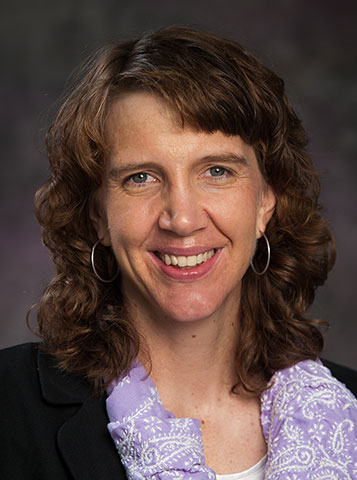Even without eggs, eating uncooked dough can be a raw deal
Food safety specialist shares tips
November 15, 2018
OLATHE, Kan. -- You have probably heard it’s a bad idea to eat uncooked dough because it contains raw eggs. But raw flour can also make you sick, says Londa Nwadike, extension state food safety specialist for Kansas State University and University of Missouri.
As the holiday season approaches, Nwadike urges people to resist the temptation to taste uncooked batter or dough, no matter how delicious it might be.
“Bacteria from animal waste and other sources can contaminate grain in fields or throughout the grain transportation and flour production system,” Nwadike says. According to the U.S. Food and Drug Administration, flour from milled grain is typically not treated to kill bacteria.
“That means it’s not safe to eat until properly cooked,” she added.
You might have licked cake batter or cookie dough from spoons lots of times with no ill effects. But some haven’t been so lucky, Nwadike says.
In 2016, more than 60 people grew sick from E. coli bacteria linked to contaminated raw flour, according to the U.S. Centers for Disease Control and Prevention. More than 10 million pounds of flour and flour-containing products were recalled, including bread, pastry and pancake mixes.
What about cookie dough ice cream? Nwadike says commercially purchased cookie dough ice cream should be safe because it contains heat-treated flour and pasteurized eggs. But that might not be true of store-bought cookie dough for baking. A 2009 outbreak traced to prepackaged raw cookie dough sickened 72 people; many of them were hospitalized.
“Bacteria have changed over the years, so they may be more likely to cause ill effects now than in the past,” Nwadike says.
The FDA offers safety tips for preparing cookies, pies, cakes and other foods containing flour:
• Don’t eat uncooked dough, batter or other foods containing raw flour.
• Be sure children don’t eat or taste dough used in crafts.
• Make sure foods containing flour are cooked to the proper temperature. Follow recipes or package directions.
• As with raw meat, keep raw flour or eggs separate from ready-to-eat foods.
• Clean bowls, utensils, countertops and other surfaces thoroughly after use. Wash hands often.


